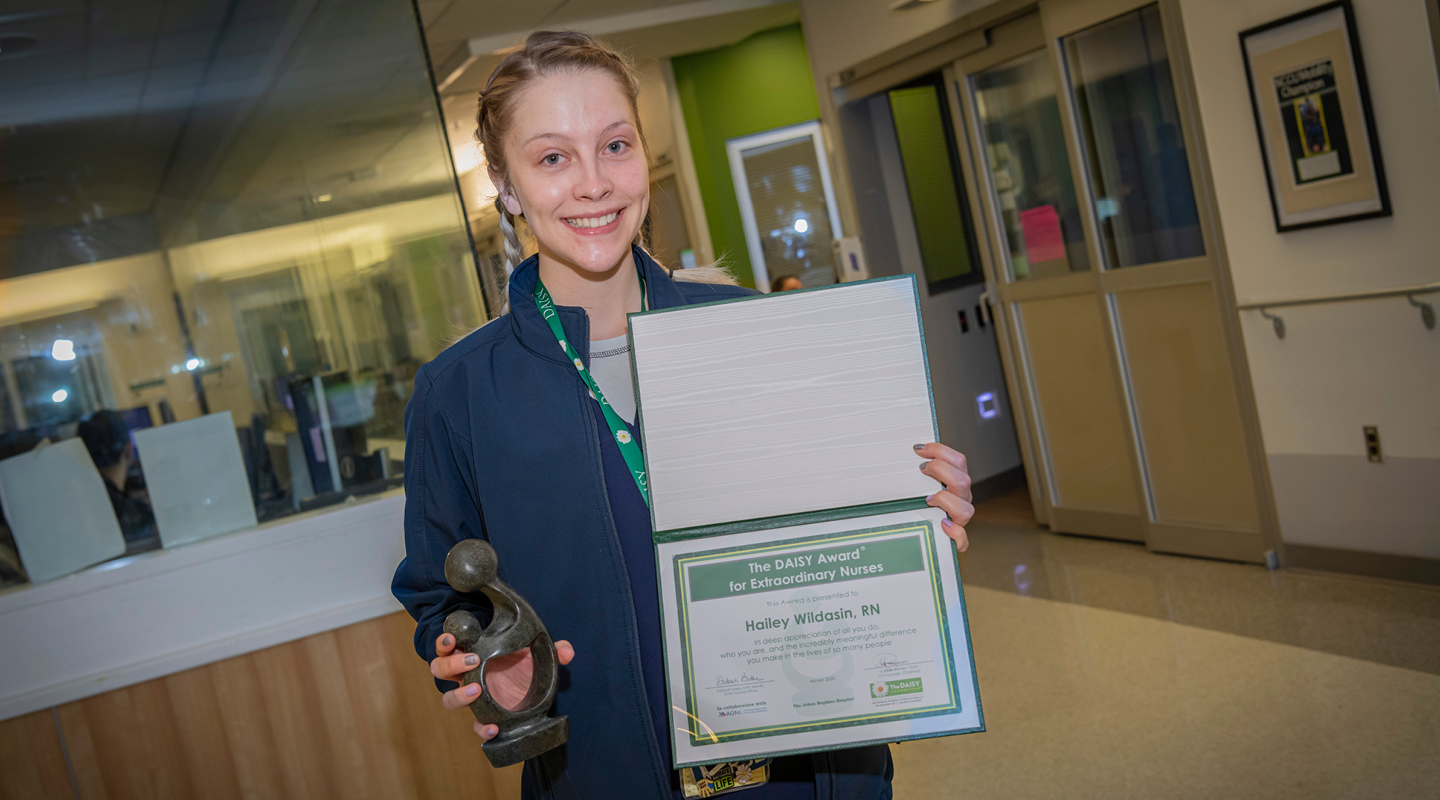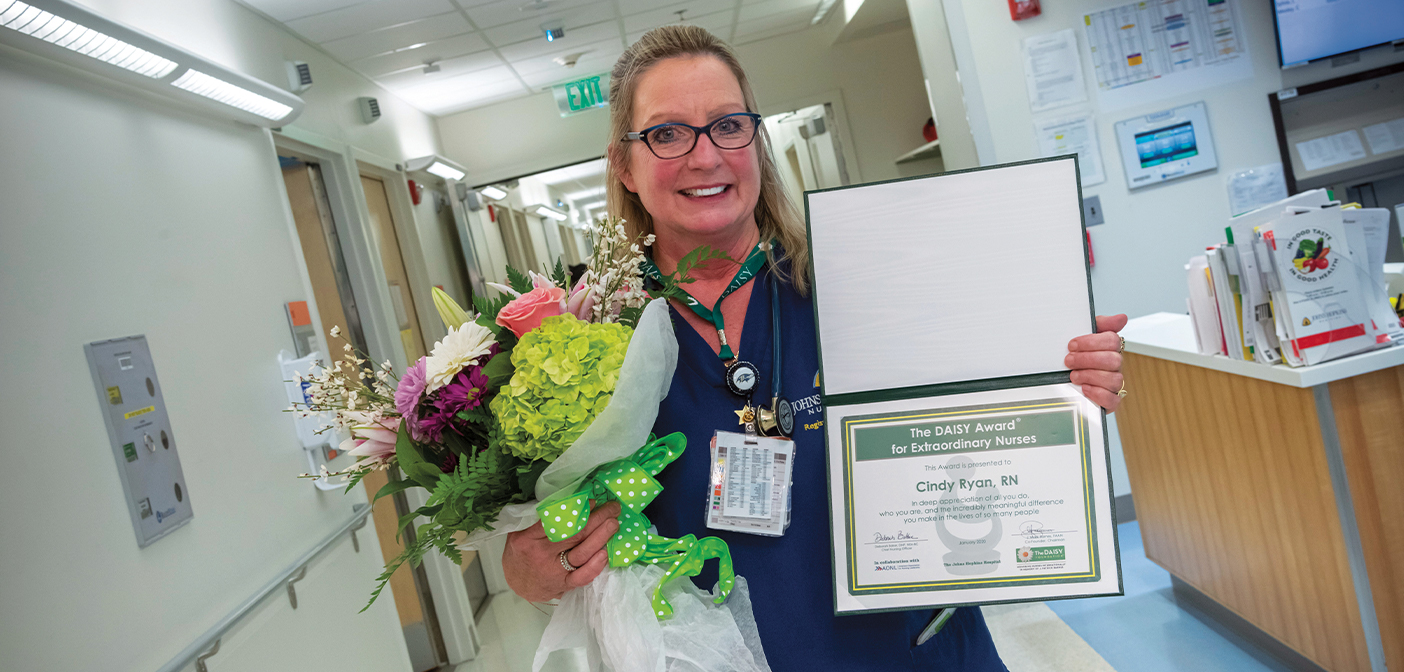Training helps clinicians cope and be more compassionate
By Teddi Fine
When treatment no longer alleviates patient suffering, many clinicians are unsure how to proceed. They know how to heal better than how to care for the dying patient.
In “Impact of a contemplative end-of-life training program: Being with dying” [Palliative and Supportive Care, December 2009], associate professor Cynda H. Rushton, PhD, RN, examines the impact of the “Being with Dying” training program on clinicians’ capacity for more connected and compassionate care.
“The program,” Rushton notes, “helps demonstrate that providing compassionate care requires both openness and active engagement, and that caring for patients, particularly those who are dying, is also about caring for oneself, too.”
 DAISY Award Winners from the Year of COVID
DAISY Award Winners from the Year of COVID Latest JHH DAISY Award Winners
Latest JHH DAISY Award Winners 2019 DAISY Awards
2019 DAISY Awards The Caregiver’s Mental Health is Important Too
The Caregiver’s Mental Health is Important Too Cells to Society—November 2018
Cells to Society—November 2018







